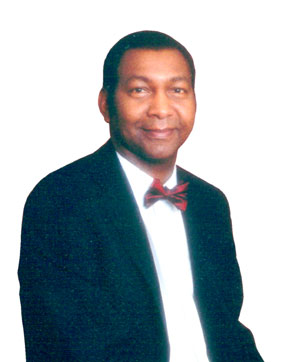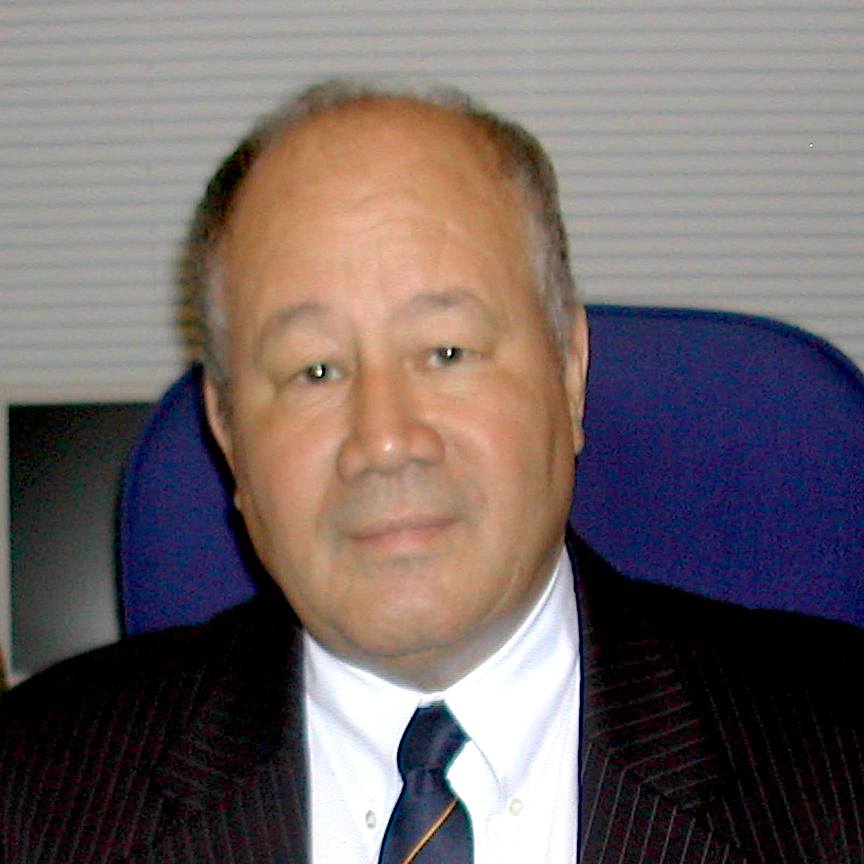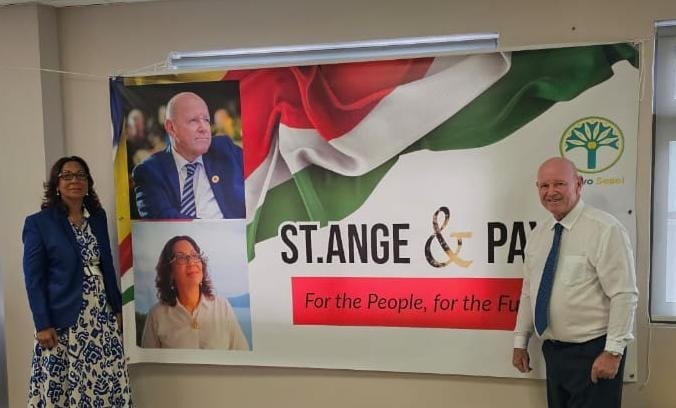Why National Reconciliation is a must for a better Seychelles
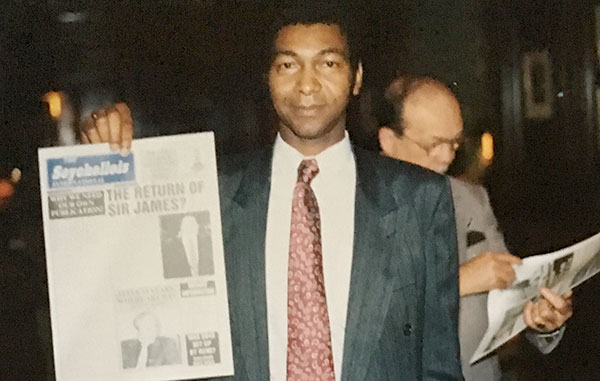
By Lewis Betsy
I have long campaigned for Seychelles to launch a Commission for National Reconciliation and Unity and felt my pleas being totally ignored.
Much was promised but nothing has been done.
So it was a dream come true for me when the National Assembly unanimously approved a motion calling for the creation of an Assembly committee for truth, reconciliation and national unity.
This would start the ground work for setting up a national, independent commission.
I have worked with many different groups and organisations to try to get the Seychellois diaspora together and I have devoted my life to bringing back true democracy, national unity and national reconciliation to our beloved Seychelles.
So Wednesday 2nd November, 2016, has to go down in the history books as a big step for our small, beautiful Seychelles.
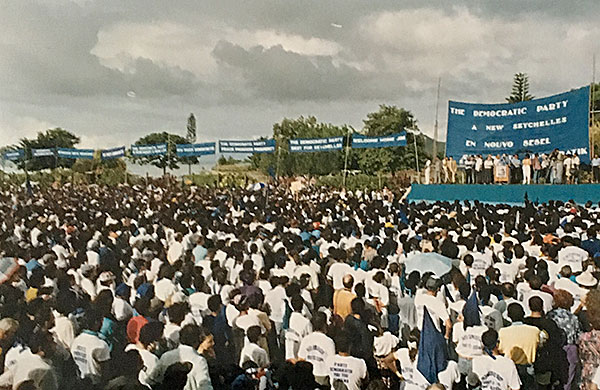
Since 5th June 1977, many Seychellois have been through all sorts of difficulties, and faced terrible victimisation for no reason at all. Some went to jail, some lost their lives.
Many were detained without charge or trial and, like myself, had to leave our homeland in their thousands and start a new life abroad in countries such as the United Kingdom, Canada and Australia.
Since I was released from Rene’s jail, I’ve been living in the UK and I have to thank the British Government which gave me the opportunity to turn round my life for my wife and our two children.
It has taken decades, but now great political change is on us as the Opposition groups have rallied to overcome the prejudices of a Government under the control of one party, Parti Lepep.
The news that the National Assembly, now led by the Opposition groups, was setting up a reconciliation and national unity committee was just the tonic we needed after all these years.
I must take this opportunity to congratulate Wavel Ramkalawan, Leader of the Opposition who tabled the motion.

It is the beginning of a new Seychelles so hopefully we can live in peace and harmony together in our homeland, without any intimidation and victimisation.
The members who will make up the Assembly committee are François Adelaide, Nicholas Prea, Bernard Georges and Mr Ramkalawan from the Linyon Demokratik Seselwa, while the Parti Lepep members are Basil Hoareau, Simon Gill, and Charles de Commarmond.
Mr Ramkalawan said the idea behind the motion follows:
* The degree of importance being attached by all leaders in the country on the issue of unity and national reconciliation.
* The opportunity that the National Assembly election has provided for our people to address the matter in an honest and open manner.
* The fact that almost 40 years following the coup d’état in 1977, there are still people who are suffering as a result of events which happened over these years
Mr Ramkalawan said among its objectives the committee would:
* Study different tools and methodology adopted by other countries to come up with a model suitable for Seychelles.
* Propose a structure to government which would study and analyse complaints by individuals affected, with the aim of shedding light on those events which have taken place in the recent history of our country and that once and for all the truth will come out and those affected will find a solution and peace and closure to their suffering to allow the country to move forward with confidence in the future.
* Make recommendations on policies which would be adopted and action that could be taken to reduce political division in the country for national unity to foster.
Mr Ramkalawan noted that the committee will also, through discussions with concerned authorities, develop and put in place the necessary legal framework to set up an independent truth and reconciliation commission which will then take on the work from the Assembly committee.
Mr Ramkalawan explained why almost 40 years after the coup d’état it was important that the truth be known about the many cases of mysterious death and disappearances; the issue of those thrown into prison without reason or fair trial and the cases of Seychellois being forced into exile in fear of their lives because of their different political opinions.
Among the people cited by Mr Ramkalawan who were detained without trial in 1978 were Robert Frichot, Mickey Mason, Carlette Tall, Owen Hoareau, Felix Hoareau, and Winnie Adeline.
It was these kinds of events, he said, that created bitterness among those affected on one side while on the other side it destroyed unity and created division.
Among the people whose cause of death is shrouded in mystery, Mr Ramkalawan cited Berard Jeannie, Francis Rachel, Simon Denousse, and Davidson Chang-Him.
Among those who disappeared was Alton Ah-Time. His case was recently back in the limelight following the discovery of a human skull at Beau Vallon.
I too recall one incident in particular. The disappearance of Hassan Ali was a shocking blow to his family and all concerned. He vanished on his way to St Louis to deliver a car to his sister-in-law on 13th August 1977. Nothing was ever heard of him again.
Mr Ramkalawan said that the period following the 1977 coup had been one full of sad events and upheavals which are still causing suffering and division. Many grieving families are still asking questions, seeking answers and looking for the truth about their loved ones.
He said: “I believe we need to move towards restorative justice – a model adopted by South Africa – which will allow us to know the truth, deal with it, let people know about it and then move forward.”
Members of both sides agreed that Seychelles needed national unity and reconciliation to close the chapter on a painful and sensitive past.
But a member of Parti Lepep pointed out that people should not forget that part of history which was related to the fight for independence, liberation, social justice, and the development and achievements it brought to the country.
In his summing up Mr Ramkalawan said it was time for Seychelles to start the process to give closure on such a painful chapter of our history.
“I know this is not going to happen soon because there is a lot of work need to be done before it is all sorted out. But I will do my best to help bring about real National Reconciliation and National Unity in Seychelles.”
After he spoke I recalled how my life in exile in the UK charted a far different course to the one I had anticipated in Seychelles.
I was also reminded how fiercely I felt about the injustice of it all.
On 15th August, 1990, I launched the first Seychelles newspaper, The Seychellois International, at the Harvard Bar at the Grosvenor Hotel, in Central London.
Many eminent Seychellois turned up to welcome the initiative. The main aim of the newspaper was to inform the world what exactly was going on in our beautiful islands.
During that time there were so many atrocities I felt no one cared about the issues of the day to day running of Seychelles.
I took the decision to let people everywhere know what the situation was. Someone had to do something to put pressure on the Rene regime which then was getting out of hand.
I believe it worked because in 1991 we had the beginning of change. President Rene announced the return of multi-party democracy.
At that time Seychelles was getting a lot of pressure from all sides and Founding President Sir James Mancham, who was deposed in the 1977 coup, was generating plenty of publicity.
He was putting on his own pressure by utilising equipment then new – the Fax Machine. His campaign was dubbed the Fax Revolution and the Voice of Crusade for Democracy.
On Palm Sunday 1992, Sir James returned to the Seychelles from exile and was greeted by the biggest crowd ever seen there.
Supporters lined the streets from the International Airport to the Gordon Square/Freedom Square. That day Sir James gave me great inspiration when he spoke of National Reconciliation. Since then I have done my best to help make that happen.
This time I am optimistic and I am dedicated to ensuring SeychellesLife will play a major role to make sure that National Reconciliation will be for the betterment of the people of Seychelles.
Of course, Sir James was not alone in his endeavours. Two other figures also played a part in trying to return democracy to our homeland – Dr Michael Scheele and Dr Maxime Ferarri. (Dr Ferarri was a strange case. He was a former Vice-President under Rene but had swapped sides and joined the opposition – which he wanted to lead. Many were sceptical about his motives.)
On Monday 22nd July 1991, Dr Michael and Sir James Mancham spoke in Munich, Germany, on realising “Reconciliation through Dialogue”. It was a key moment but it took 26 years for anything concrete to happen.
Today, we need to work together with the new NA committee members. They will need the support of all the Seychelles people for this to be a success. Therefore anyone who has information that will help the process should come forward.
It is also time to get the many talented Seychellois working abroad in countries to come back home to help their country.
We’ve got an ideal opportunity so let’s grab it with both hands and start helping the NA Committee. It will not be an easy task, but I am sure that with the support of all the people of Seychelles at home and abroad we can make a positive difference.
Since the moment in March 1980 when I left Seychelles, I have been working for this moment.
I want us all to live in peace and harmony together.
And yes, there is much to do. Politics apart there are other great social problems with drug abuse and poverty.
We must help those suffering find a place in society so they can turn their life around for the better. In the end the whole country will benefit.
This is the time to make Seychelles a paradise for us all.
Lewis Betsy is Publisher of SeychellesLife
